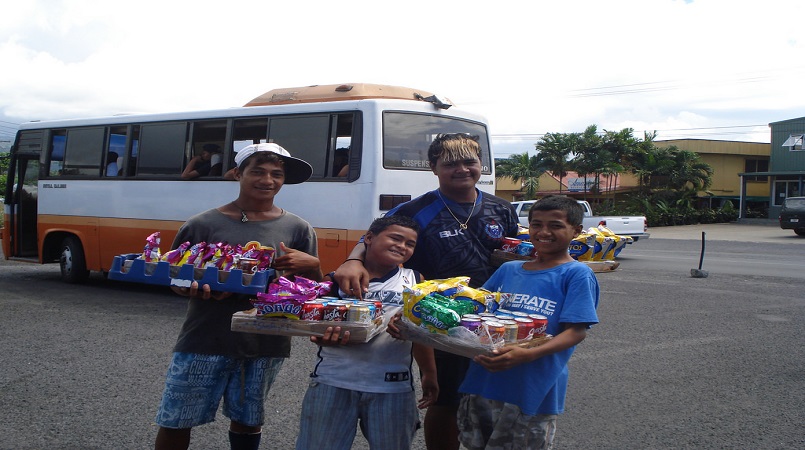
The latest research conducted by the Samoa National Youth Council has highlighted the issue of unemployment in Samoa as somewhat mildly alarming.
Only 22 percent of youth in Samoa are employed, which means they are economically active and contribute to the economy. For example working for a government of private business to earn money and pay taxes.
About four percent of the youth population are unemployed, who are not active in any type of development within families and 74 percent are economically inactive. This means they do not work for a company or pay taxes, but work plantations and live off the land as the tradition goes.
These are statistics provided by the latest research. While being economically inactive is not counted as unemployed, they are limited only to what they can grow, hunt or fish.
However, the SNYC is pushing for a little more than just farmers within their means.
"As you may be aware, majority of young people who are early school leavers are quite talented in other areas that is not academic such as the creative industry in which TV1 is a lead advocator through the Samoa Best Dance Crew and the Star Search competition, farmers, weavers, crafters and so forth," stated Kaisarina Salesa of the non profit organisation.
"This is one aspect of the informal sector that we are seeking national recognition from Government and development partners so that it can be mainstreamed into our education (both vocation and academic) system," she added.
These are statistics youth between the ages of 15 and 29.
The recent increase in population though has seen the percentage drop from the 26.1 percent of youth population in the labour force survey conducted by the Samoa Bureau of Statistics in 2012.
The biggest fear for Samoa is the growing number of street venders in the in the urban area. Abandoning school priorities and working at the tender age of 10.
Some of these children don’t go home until their items are sold. They say that their parents threaten them a beating if they return without everything being sold.
Despite the mandatory education law established by the Government there is still a window taken advantage of by parents of these young street vendors.
Other methods produced by the Government to reduce the problem is by the push of tourism in Samoa. Creating more hotels and resorts to attract not only revenue through tourism but the youth to take up job in their village run resorts.
The positive hope for SNYC is that the action plans and projects are now mobilising in empowering youth.
"In addition, social entrepreneurship should be fostered so that Samoa can begin to develop not only job seekers but also job creators," stated Salesa.
This push is part of the introduction of small business supports for local handicrafts makers in the country.
